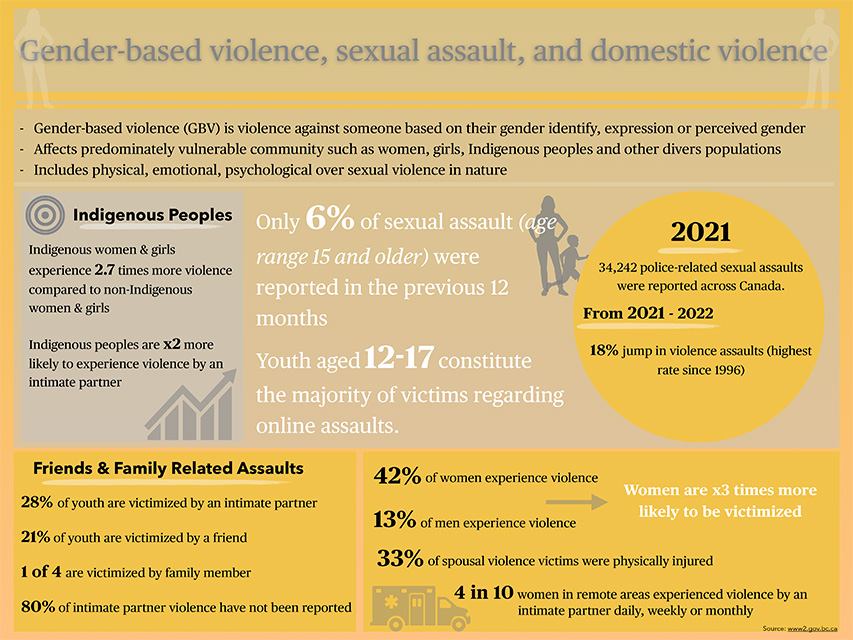
Domestic violence is on the rise, police say
Prospect of intimate partner abuse makes some women wary of future relationships
by Ty Lim
Like an increasing number of women, Amy Chan feels wary of future relationships. She worries about the risks of increased domestic violence.
“It’s so (expletive) up how men think that they have the power over women if they think they can hit them that they’ll follow them,” the Langara medical office assistant student said.
She’s right to be concerned – domestic violence is rising. According to a 2021 Statistics Canada census, 127,082 Canadians were reported as victims of domestic violence, a three per cent increase from the previous year.
Tracy Sundbo, a victim support counsellor embedded with the New Westminster Police Department said she deals with up to 10 new cases of domestic abuse each month.
“More women are coming forward with their stories because of organizations and supports that have been put into place,” said Sundbo. “They feel like they…have somewhere to go and they have someone to support them.”
With Prevention of Violence Against Women week happening from Apr. 16 to Apr. 22, thoughts of potential abuse from a partner or loved one have been on the mind of many women.
Langara general studies student Noor Kaur said she has lived around emotional abuse in her Punjabi culture.
“They are just controlling the women in the family, making them feel helpless,” Kaur said.
She has seen an incident of domestic violence happening to one of her neighbours, she said.
“Thankfully the kids of the mother, they reached out to the police,” Kaur said.
Spreading awareness for intimate partner violence
In the leadup to Prevention of Violence Against Women week, police and community programs are spreading awareness of domestic violence.
An Apr. 4 event at Douglas College Coquitlam campus – Relationship Safe[Tea] – was held in order to raise awareness of violence against women.
Tri-cities Transitions speaker Dela Hoorfar said since the COVID-19 pandemic domestic violence has increased since more women are stuck at home with their partners.
The resources Tri-cities Transitions offers include counseling for women affected by domestic abuse, as well as a temporary place for them to get away from their abusers.
Other organizations at the event also offer different services to those who need it.
Vancouver & Lower Mainland Multicultural Family Support Services Society speaker Ramiza Delshad Faiz said there is a large contingent of international residents in Canada suffering from domestic abuse.
Faiz and Tri-cities speaker Taryn Grant said transition homes are a big help for women leaving an abusive situation. Users of these homes can stay from 15 to 30 days, sometimes longer if they are still in need of assistance.
“We always say that whatever resources they want to do, it’s always their choice,” said Grant, talking about women graduating from transition homes.
Langara established a Sexual Respect Ambassador Program in 2017 to educate the college community on consent. Services are also available through the Sexual Violence Support and Education Program.
If you or someone you know is experiencing domestic or intimate partner violence, this B.C. government website contains additional links and resources.


Comments are closed.